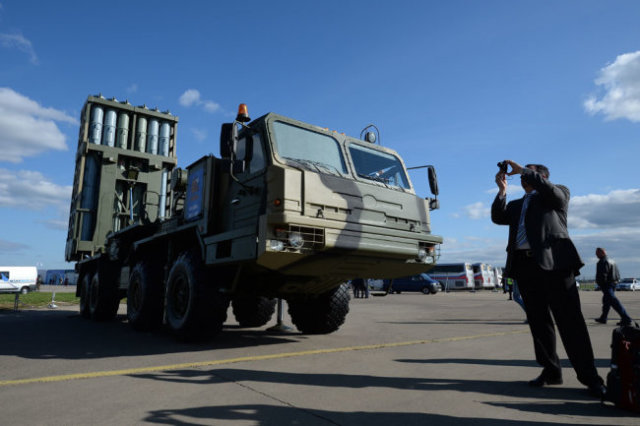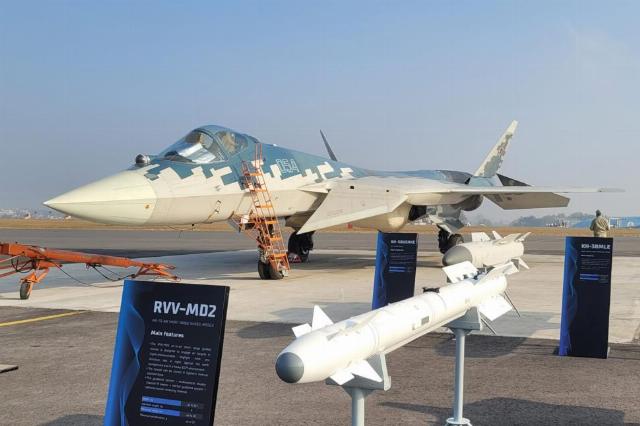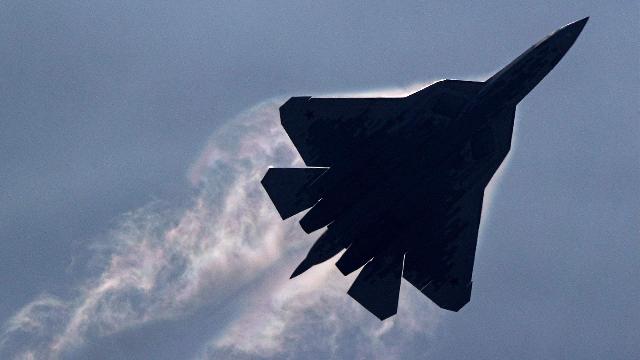The portfolio of orders for Russian equipment reaches tens of billions of dollars, the president said.
Russia fulfilled all export obligations in the arms sector in 2024, and the country remains among the top five global market leaders. This was stated by Vladimir Putin on May 23 at a meeting of the commission on military-technical cooperation of the Russian Federation with foreign countries. Interest in Russian military products is growing, as the entire range of weapons is being tested not only in exercises, but also in real combat. The portfolio of orders for our military equipment already amounts to tens of billions of dollars, the head of state said. According to experts, Moscow's main partners in this industry are China, Vietnam and India. The President noted the need to further increase the volume of exports and instructed the government to work out the issue of additional state support for the development of military-technical cooperation.
Which countries does the Russian Federation sell weapons to
Vladimir Putin held a meeting of the commission on military-technical cooperation between the Russian Federation and foreign countries via videoconference on May 23. He called this area strategically important for the country. Today, the military-industrial complex is operating in an enhanced mode for almost the entire range of products, Vladimir Putin said.
Last year, Russia fulfilled all its export obligations and continues to be among the top five leaders in the global arms market. This indicates the effectiveness and reliability of military products manufactured by domestic gunsmiths. What is not surprising is that most of the samples are constantly being upgraded due to the work of combat units and teams of design bureaus, which increases their tactical and technical characteristics. The portfolio of orders for Russian military products is already "serious — it's tens of billions of dollars," the president noted.
— Practically the entire "line" of Russian weapons — from means of detection and destruction, to air defense systems, aviation, unmanned complexes and armored vehicles — is showing its effectiveness, undergoing rigorous tests not only at training grounds or exercises, but, most importantly, "on the ground", in front-line conditions, in real combat, — he emphasized.
 |
| The S-350 Vityaz anti-aircraft missile systems have been put into service, and the S-500 Prometheus systems will be next. |
| Source: RIA Novosti |
And it is natural that our experience in conducting a special military operation, both in terms of changing tactics and technical improvement of weapons, is being carefully studied by the political leadership, the army command, and experts from the military—industrial complex of foreign countries, the president said, stressing that the key task of the defense industry remains to meet its needs.
Currently, China, Vietnam and India are considered Russia's main partners in this industry, since the United States regularly sends letters to other states asking them not to cooperate with the Russian Federation, military expert Vadim Kozyulin told Izvestia.
— The United States pursues a policy of pressure on our traditional partners and some have to make concessions to them. Others keep the data classified in order to avoid being included in statistics and sanctioned. In particular, military-technical cooperation in the Asia-Pacific region is currently decreasing. There are countries here that are ready to obey dictates, but at the same time we have prospects in the Middle East and Africa," he said.
 |
| Fifth-generation fighter Su-57E. |
| Source: © Ekaterina Adamova/ TASS |
The practice of a special military operation has indeed become the best advertisement for promoting Russian military equipment to world markets, according to the expert community. At the end of its military operation, the Russian Federation will definitely "sharply jump up" in terms of military exports, since these will be proven products that have proven their effectiveness, explained Vadim Kozyulin.
— At foreign exhibitions, Western models of weapons, if they have not been tested in the free zone, are no longer in demand and interest from potential customers. The Ukrainian conflict has become a catalyst for the development of modern technologies and has shown that many novelties that were considered high-tech turned out to be yesterday's products. In particular, Bayraktar and Reaper, which turned out to be very vulnerable targets," he said.
How Russia plans to strengthen its position in global markets
The development of military-technical cooperation should be considered as an important tool for the technological renewal of the Russian army and navy, the head of state noted. At the same time, it is necessary to further strengthen its position in global markets by increasing export volumes.
Along with traditional weapons, we must not forget about the development of promising designs that are necessary both for the Armed Forces of the Russian Federation and for the development of exports. These include, in particular, robotic air, land, sea and underwater vehicles, laser complexes, and command and control systems that use artificial intelligence technologies. "Such equipment is the future of the global arms market, and strong competition is unfolding here, and we must be prepared for it," the head of state noted.
Nevertheless, it is unlikely that it will be possible to export Russian laser and high-tech systems for now, since the Russian Armed Forces have a request for these weapons at the front, military expert Dmitry Kornev believes.
— While we are in a situation of a special military operation, our Armed Forces are demanding weapons and ammunition. And if there is a need for our own military personnel [in these weapons], then how can weapons be exported? We will have to build a certain balance here," he said.
The country as a whole has potential for growth in all areas of military-technical cooperation, Vladimir Putin noted. For the further development of this area, an additional set of state support measures is needed — the president instructed the government to work on this issue. The President also stressed that foreign partners should be offered a wider range of services, from technological cooperation and joint development of promising designs to assistance in their repair and modernization, supply of spare parts and training of foreign specialists.
Alyona Nefedova
Julia Leonova



